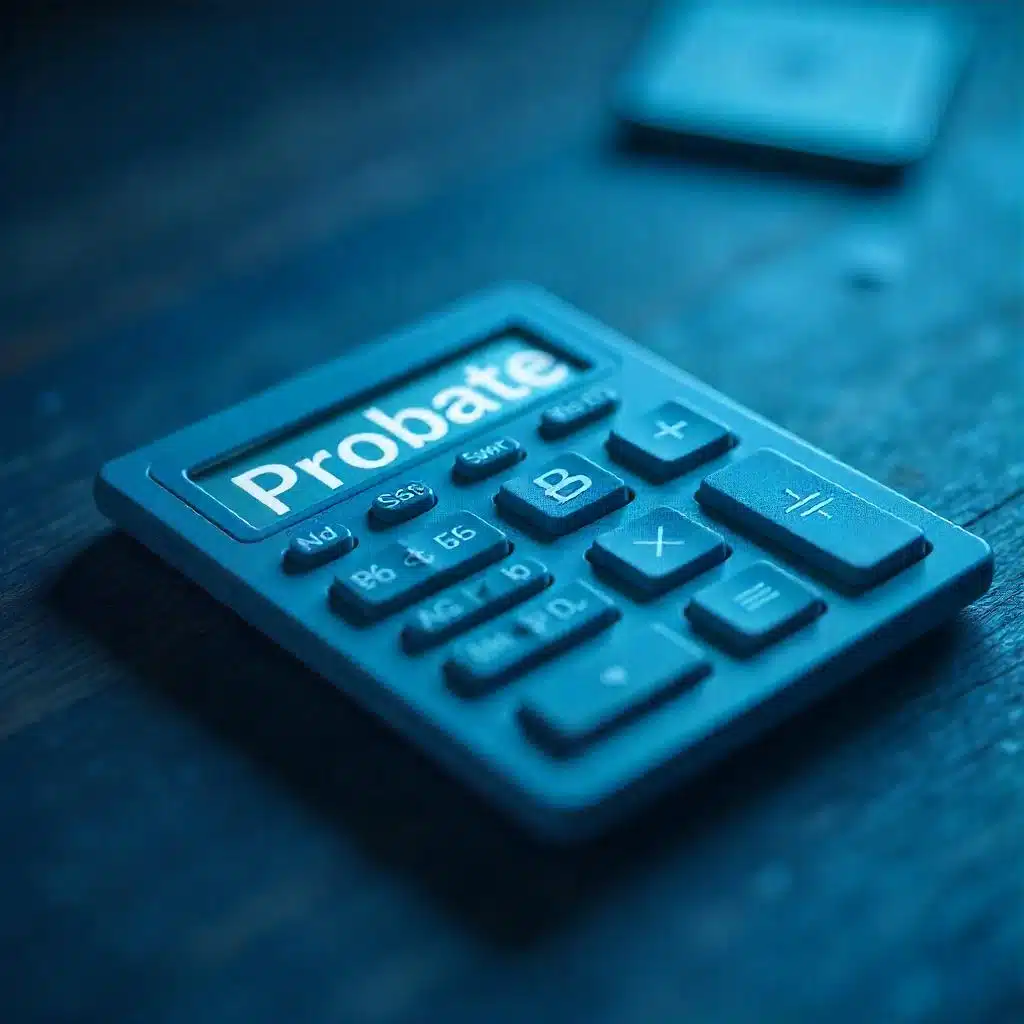
When a person dies in Texas without a valid will, they are considered to have died “intestate.” Texas law then dictates how their assets will be distributed through a process called intestate probate. Understanding what items are included in intestate probate in Texas is crucial for heirs, potential beneficiaries, and anyone involved in settling an estate.
This isn’t simply a matter of listing belongings; it’s about correctly identifying which assets are subject to the probate court’s oversight and which are not. Misunderstanding this can lead to delays, disputes, and potentially costly legal challenges. This guide provides in-depth information, going beyond the basics to give a clear picture of this important aspect of Texas estate law.
What Items Are Included in Intestate Probate Texas: The Core Assets
The foundation of intestate probate in Texas rests on the concept of “probate assets.” These are assets owned solely by the deceased at the time of death that do not have a designated beneficiary or a mechanism for automatic transfer outside of probate. These are the items that will be inventoried, appraised, and ultimately distributed according to Texas intestacy laws.
Here’s a breakdown of the core asset categories:
Real Property Owned Solely in the Deceased’s Name
This is often the most significant asset in an estate. If the deceased owned a house, land, or any other real estate solely in their name, without any form of joint ownership with right of survivorship or a transfer-on-death deed, it is included in the probate estate. This is true regardless of whether there’s a mortgage on the property. The equity in the property (the value minus the outstanding mortgage balance) is what’s considered part of the estate.
Personal Property
This is a broad category encompassing a wide range of tangible assets. It includes:
- Vehicles: Cars, trucks, motorcycles, boats, and recreational vehicles registered solely in the deceased’s name.
- Bank Accounts: Checking, savings, and money market accounts held solely in the deceased’s name. Accounts with payable-on-death (POD) designations or joint accounts with right of survivorship are not included.
- Investment Accounts: Stocks, bonds, mutual funds, and other brokerage accounts held solely by the deceased. Again, accounts with beneficiary designations or joint ownership with right of survivorship bypass probate.
- Household Goods and Personal Effects: Furniture, appliances, clothing, jewelry, artwork, and other personal belongings. While the monetary value of some of these items may be low, they are still technically part of the probate estate.
- Business Interests: If the deceased owned a sole proprietorship or a share in a partnership that doesn’t have a specific succession plan outlined in a legally binding agreement, that business interest becomes part of the probate estate.
- Intellectual Property: The ownership right in copyrights, trademarks, and patents.
- Unpaid wages or salary: Money that is due to the decedent.
- Debts Owed to the Deceased: If someone owed the deceased money at the time of death (e.g., a personal loan, unpaid invoices for a business), that debt becomes an asset of the estate. The estate’s administrator or executor has the responsibility of collecting these debts.
What Items Are Included in Intestate Probate Texas: Community vs. Separate Property
Texas is a community property state. This distinction is critical in intestate probate. Understanding the difference between community property and separate property is absolutely essential to determining what is included in the probate estate and how it will be distributed.
| Property Type | Definition | Intestate Probate Distribution (Texas) |
| Community Property | Property acquired by either spouse during the marriage (with exceptions like gifts and inheritance, which are separate property). Owned equally by both spouses. | Distribution depends on the deceased’s children: * If children are only with the surviving spouse: Surviving spouse inherits the deceased’s entire half of the community property. * If children are from a previous relationship: Deceased’s half of community property is divided among those children; surviving spouse retains their half. |
| Separate Property | Property owned before the marriage, or received during the marriage as a gift or inheritance. Remains the sole property of the receiving spouse. | Distributed differently than community property. A portion goes to the surviving spouse, and the remainder is divided among the deceased’s children (or other heirs if there are no children, such as parents or siblings). The specific proportions are defined by Texas intestacy law. |
Examples to Illustrate the Difference:
- Scenario 1: A husband buys a house during the marriage with earnings from his job. This is community property.
- Scenario 2: A wife inherits a sum of money from her aunt during the marriage. This is her separate property.
- Scenario 3: A husband owned a car before the marriage. This remains his separate property.
It is extremely important to note that separate property that has been comingled might change its status as separate. For example, a spouse inherited money (separate property) but deposited it on a joint account (comingled with community property funds).
What Items Are Not Included in Intestate Probate Texas
Equally important to knowing what is included is understanding what is not subject to intestate probate in Texas. These assets pass directly to designated beneficiaries or co-owners, bypassing the probate process entirely.
Assets with Beneficiary Designations
- Life Insurance Policies: Proceeds from life insurance policies go directly to the named beneficiary, not the estate.
- Retirement Accounts (401(k)s, IRAs): These accounts typically have designated beneficiaries who inherit the funds directly.
- Payable-on-Death (POD) Bank Accounts: These accounts transfer automatically to the named POD beneficiary.
- Transfer-on-Death (TOD) Deeds for Real Estate: Texas allows TOD deeds, which specify who will inherit the property upon the owner’s death, avoiding probate.
- Transfer-on-Death (TOD) Registration for Vehicles.
Property Held in Joint Tenancy with Right of Survivorship
If the deceased owned property jointly with another person “with right of survivorship,” the surviving owner automatically inherits the deceased’s share. This is common with real estate and bank accounts.
Assets Held in a Living Trust
Property placed in a valid living trust (also known as a revocable trust) is not subject to probate. The trust document dictates how the assets will be distributed.
US Savings Bonds Co-owned or with a Beneficiary
If the savings bond has a co-owner, the surviving owner automatically inherits the funds.
Mistakes in Listing Assets for Intestate Probate
Mistakes in identifying and listing assets for intestate probate can lead to significant problems. Here are some common errors:
- Incorrectly Classifying Property as Community or Separate: This is a frequent source of error, especially in long-term marriages where assets may have been commingled. Seeking legal advice is highly recommended to ensure accurate classification.
- Overlooking Assets: It’s easy to overlook smaller assets, such as digital assets, intellectual property, or debts owed to the deceased. A thorough investigation is necessary.
- Failing to Identify Beneficiary Designations: Not checking for beneficiary designations on accounts and policies can lead to assets being unnecessarily included in the probate estate.
- Misunderstanding Joint Ownership: Assuming that all joint ownership automatically avoids probate is incorrect. Only joint tenancy with right of survivorship bypasses probate.
- Undervaluation or overvaluation of the assets: To provide the court with a more precise valuation of the decedent’s real estate, personal belongings, and other possessions, an independent appraisal is required.
What to Consider When Identifying Probate Assets
Identifying assets for intestate probate is a meticulous process. Here are key considerations:
- Thorough Record Review: Examine bank statements, investment account statements, property deeds, vehicle titles, insurance policies, and any other relevant documents.
- Safe Deposit Boxes: Check for safe deposit boxes and obtain legal authorization to access them.
- Digital Assets: Consider digital assets such as online accounts, cryptocurrency, and social media accounts. Texas law addresses access to digital assets.
- Consult with Professionals: An experienced Texas probate attorney can provide invaluable guidance in identifying, classifying, and valuing assets. An appraiser may also be needed to determine the fair market value of certain assets.
- Review all debts. The estate must also list any debts the deceased person had, including mortgages, loans, credit card debt, and unpaid taxes.
Expanding on Related Topics: The Role of the Administrator
In Texas intestate probate, the court appoints an “administrator” to manage the estate. The administrator’s responsibilities include:
- Identifying and inventorying all probate assets.
- Paying the deceased’s debts and taxes.
- Distributing the remaining assets to the heirs according to Texas intestacy law.
- File an affidavit of heirship.
The administrator has a fiduciary duty to act in the best interests of the estate and the heirs. They must be meticulous, organized, and knowledgeable about Texas probate law.
Conclusion
Understanding what items are included in intestate probate Texas is crucial for a smooth and legally sound estate settlement. It requires careful attention to detail, a thorough understanding of Texas property laws (especially the distinction between community and separate property), and often the guidance of legal professionals.
By accurately identifying probate assets and those that bypass probate, the process can be streamlined, minimizing delays and potential disputes among heirs. Failing to properly identify and categorize assets can lead to significant complications, highlighting the importance of a comprehensive approach to this critical aspect of estate administration.
Other Related Articles:
- What in a Will Goes to Probate in Texas, and What Does Not?
- What is a CSZ Probate in Texas? Understanding the Process
- What Court Probate in Texas Is: A Comprehensive Guide
- What Happens If You Don’t Probate a Will in Texas? A Comprehensive Analysis
- Do You Have to Probate a Will in Texas? A Comprehensive Guide
- Does a Surviving Spouse Need Probate in Texas?
- How Much Does Probate Cost in Texas? Avoid Costly Surprises
- How Long to Probate a Will in Texas: A Comprehensive Guide for Executors
- What questions should you ask a probate lawyer?
- Which Property Should Be Included In Texas Probate or Intestate
FAQs
Not necessarily. If the house is community property and the deceased has children only with the surviving spouse, then the surviving spouse inherits the deceased’s half of the community property. However, if the deceased has children from a previous relationship, those children will inherit a portion of the deceased’s share of the community property house. If the house is separate property, the distribution is even more complex, with the surviving spouse and children (or other heirs) sharing ownership according to specific percentages defined by Texas law.
Generally, no. Bank accounts with a designated “payable-on-death” (POD) beneficiary are not subject to probate in Texas. The funds transfer directly to the named beneficiary upon the account holder’s death.
A 401(k) with a named beneficiary will pass directly to that beneficiary, bypassing probate. However, if there is no named beneficiary, or the named beneficiary is deceased, the 401(k) becomes part of the probate estate and will be distributed according to Texas intestacy laws.
If the car was acquired during the marriage, it is generally considered community property, owned equally by both spouses. If it was owned before the marriage, or received as a gift or inheritance during the marriage, it is separate property.
There is no central registry of wills in Texas. You can check with the county clerk’s office in the county where the deceased resided, contact attorneys the deceased may have used, and search through the deceased’s personal papers.
The timeline varies depending on the complexity of the estate, the number of heirs, and any potential disputes. Simple estates can be settled in a few months, while more complex estates can take a year or longer.
While it’s not always legally required, it’s highly recommended to hire a probate attorney, especially if the estate is complex, involves significant assets, or if there are potential disputes among heirs. A lawyer can guide you through the process, ensuring compliance with Texas law and protecting your interests.



